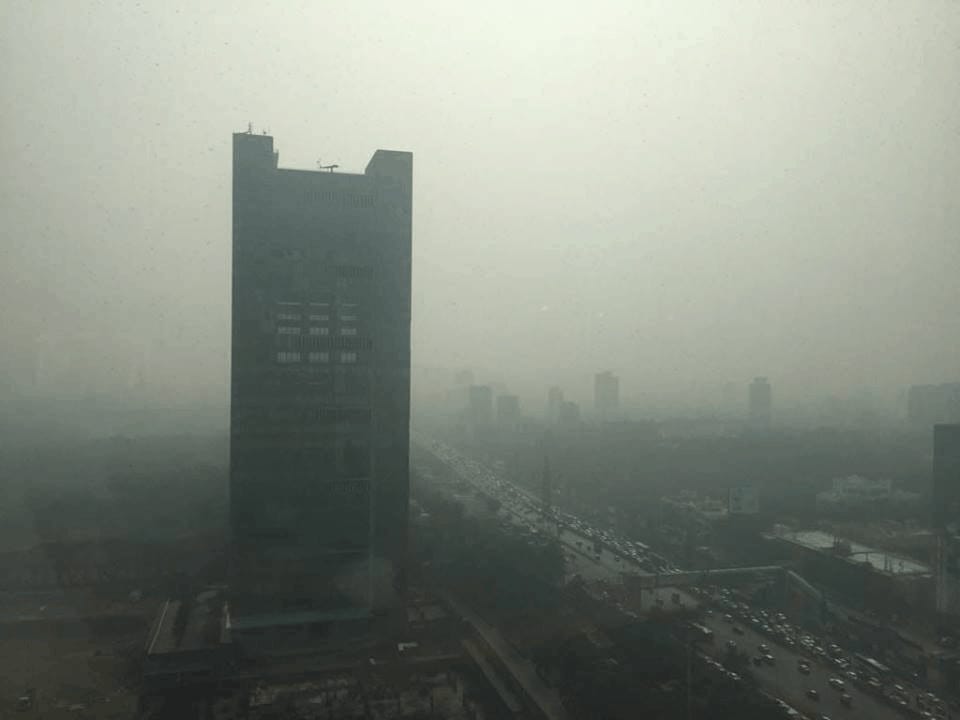First Navi Mumbai Metro after 9 years delay
The first Metro line of Navi Mumbai started on Friday after a nine-year delay. Instructing Cidco authorities, Chief Minister Eknath Shinde directed the commencement of the Navi Mumbai Metro Belapur-Pendhar Line 1 without an official public ceremony.
Initially laid in May 2011 by former CM Prithviraj Chavan, the project faced multiple delays, with its original deadline of 2014 being extended several times due to contractor negligence compounded by the impact of the pandemic.
The State opposition leader, Vijay Wadettiwar, had threatened to inaugurate the Navi Mumbai Metro service. Its inauguration, initially planned on October 26, had been postponed primarily due to the unavailability of Prime Minister Narendra Modi.
Source: Times of India
Mumbai witnesses surge in mumps cases
Residents of Mankhurd are dealing with a surge in mumps cases, a viral infection caused by a paramyxovirus.
Paediatricians reported a noticeable increase in mumps cases within lower socio-economic areas over the past six weeks. Dr. Amit Mhatre, a paediatrician practising in the Chembur-Mankhurd vicinity, said that his group of three paediatricians had encountered nearly 1,000 cases in the last two months.
“While vaccination stands as the most effective method to prevent mumps and its complications, the free national vaccination program does not encompass this specific disease, contributing to the burgeoning cases among socio-economically disadvantaged sections,” Dr Mhatre explained.
The mumps virus spreads through direct contact with infected saliva or via respiratory droplets from an infected person’s nose, mouth, or throat. While there isn’t a definitive treatment, patients are typically prescribed medications to alleviate body ache and fever.
Source: Hindustan Times
Read more: Increasing AC trains is cool, but reducing non-AC trains not done, say passengers
No smog towers for Mumbai
The BMC’s initiative to combat city pollution by implementing smog towers has been stayed for now. This decision came after a civic team, assigned to study Delhi’s two experimental smog towers, returned unconvinced about the feasibility of establishing a similar setup in Mumbai.
Even the Delhi Pollution Control Committee (DPCC), a regulatory body, has labelled these towers as “impractical” and has proposed converting the two smog towers in the national capital, erected in 2021, into museums.

A municipal official said that the BMC decided to abandon the idea, previously announced in the state budget, even before the DPCC report went public. “During our team’s visit to Delhi, it was observed that one tower was non-operational. Authorities in Delhi also expressed scepticism about their effectiveness. Moreover, setting up a tower requires significant space. Additionally, one tower was contributing to noise pollution,” stated the official, adding that the BMC is exploring alternative technologies to address pollution concerns.
Source: Times of India
Traffic police crackdown to curb air pollution
Due to the city’s alarmingly poor Air Quality Index (AQI), Mumbai’s traffic police took action by destroying 584 seized modified silencers responsible for air and noise pollution. Over the past fortnight, they cracked down on 5,866 motorists for various violations, including expired or missing Pollution Under Control (PUC) certificates.
In their efforts, the traffic police have penalised 20,000 motorists and two-wheeler riders for breaching pollution regulations. Joint Commissioner of Police Pravin Padwal informed that since the initiation of the campaign, 2,051 vehicles were caught using exhaust cutouts, contributing to air pollution.
Moreover, the police seized 841 modified silencers, fined 5,866 drivers for transporting construction material without proper covering as mandated by the Bombay High Court. They also penalised 1,738 commercial vehicles for exceeding the eight-year fitness limit.
Source: Hindustan Times
Mumbai’s electric water taxis
Starting December, Mumbai will introduce electric water taxis shuttling between Gateway of India in South Mumbai and Belapur in Navi Mumbai.
These eco-friendly boats can run continuously for four hours on a single charge. This innovation stands in contrast to the existing diesel-powered water taxis currently in operation, which consume a substantial 140 litres of fuel per hour, contributing to pollution and environmental degradation.
Infinity Harbour Service, the designated private water taxi operator for this route, has acquired four electric boats at a cost of approximately Rs 2.5 crore each.
Source: Indian Express
(Compiled by Sherine Raj)